In the domain of automotive insurance, towing coverage presents a critical, yet often overlooked component. This form of insurance not only guarantees assistance during vehicular breakdowns but also safeguards against unforeseen expenses that can arise from such incidents.
The variety of towing services and the nuances of selecting the appropriate plan for one’s needs highlight the complexity of this subject. As we explore the benefits, costs, and key considerations for integrating towing insurance into your policy, it becomes evident that making an informed decision requires understanding the intricate balance between coverage and cost.
The following discussion aims to illuminate the aspects that vehicle owners should evaluate to optimize their insurance protection while managing expenses effectively.
Understanding Towing Coverage
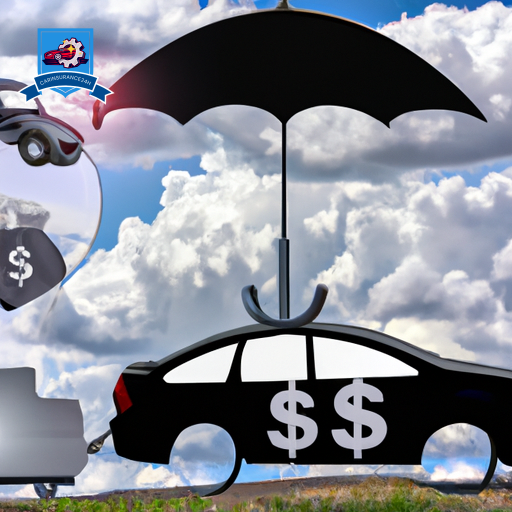
Towing coverage is an essential component of car insurance policies, designed to provide financial protection against the costs incurred from towing your vehicle in the event of a breakdown or accident. This specific feature within auto insurance policies is often surrounded by misconceptions, leading to what can be termed as ‘towing myths.’ These myths can range from overestimating the cost-effectiveness of towing services to misunderstanding the conditions under which towing is covered. It’s critical to dispel these myths to fully grasp the importance and utility of towing coverage.
One prevalent towing myth is the belief that vehicle maintenance negates the need for towing coverage. This misconception stems from the assumption that regular maintenance can prevent all forms of vehicle breakdowns. While consistent vehicle maintenance is vital and can reduce the likelihood of mechanical failures, it cannot completely eliminate the risk of unforeseen incidents on the road. Accidents, unexpected mechanical failures, or external conditions leading to a vehicle’s inability to operate safely are scenarios where towing coverage becomes invaluable.
Understanding towing coverage entails recognizing its role as a safety net, providing a layer of financial protection in unpredictable situations. It complements regular vehicle maintenance, rather than replacing it, ensuring that vehicle owners are prepared for both preventable and unforeseeable incidents. By debunking towing myths and appreciating the symbiotic relationship between towing coverage and vehicle maintenance, car owners can make informed decisions about their insurance needs, ensuring thorough protection on the road.
Benefits of Towing Insurance
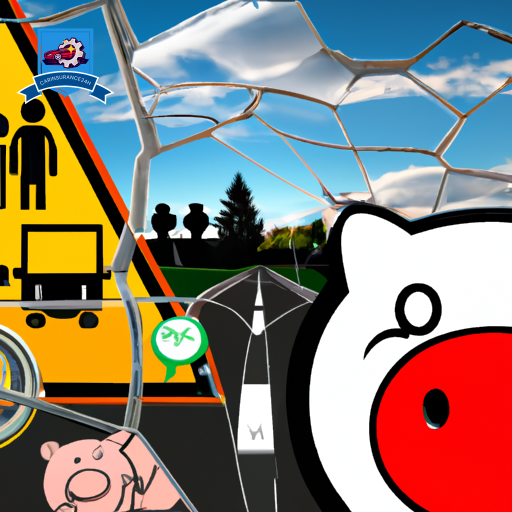
One significant advantage of towing insurance is its ability to provide peace of mind to vehicle owners, assuring them that in the event of a breakdown or accident, the costs associated with towing will be covered. This benefit alone makes towing insurance an essential consideration for those seeking all-encompassing vehicle coverage.
Towing insurance not only mitigates the financial impact of vehicle recovery but also dispels common towing myths. Many believe that towing services are prohibitively expensive or that their existing insurance policies automatically include towing—misconceptions that can lead to unwelcome surprises in times of need. However, with specific towing insurance, vehicle owners can rest assured that they are protected against such unforeseen expenses, making the service highly valuable.
Additionally, towing insurance can offer insurance discounts, providing an incentive for policyholders to include this coverage in their overall insurance package. These discounts can lead to significant savings over time, making towing insurance a cost-effective option for many drivers.
| Benefit | Description |
|---|---|
| Peace of Mind | Assures coverage for towing costs in emergencies, reducing stress and financial burden. |
| Dispels Towing Myths | Clarifies misconceptions about costs and coverage, ensuring owners understand the benefits of towing insurance. |
| Offers Insurance Discounts | Provides potential savings on premiums, making it a cost-effective addition to existing policies. |
| Mitigates Financial Impact | Covers towing expenses, safeguarding against unexpected out-of-pocket costs. |
| All-Encompassing Coverage | Enhances the overall insurance package, offering broader protection for vehicle owners. |
Types of Towing Services
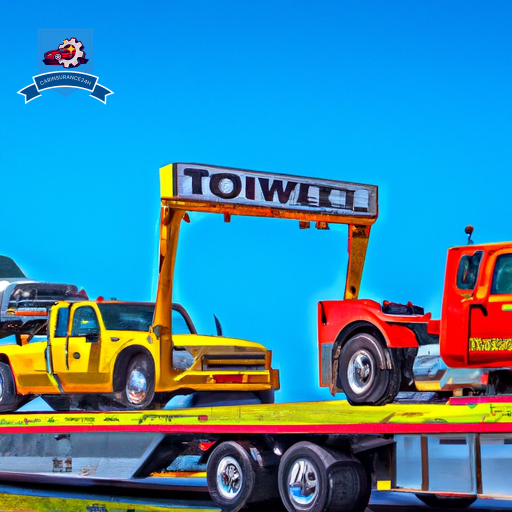
Understanding the types of towing services available is crucial for motorists seeking thorough car towing insurance coverage. Emergency towing services offer immediate assistance for vehicles that are inoperable due to accidents or mechanical failures, ensuring swift recovery and transportation.
Meanwhile, roadside assistance options provide support for common issues such as flat tires, dead batteries, and lock-outs, enhancing the overall safety and convenience for drivers on the road.
Emergency Towing Overview
Emergency situations on the road necessitate a variety of towing services to guarantee driver safety and vehicle security. Understanding the types of towing services available is essential for drivers to make informed decisions during such emergencies.
Tow truck safety is paramount, as improperly handled vehicles can lead to further damage or accidents. Additionally, local regulations govern the operation of towing services, dictating the types of tow trucks that can be used, the methods of towing allowed, and the qualifications required for tow truck operators.
These regulations make sure that towing services are performed safely and effectively, minimizing the risk to both the towed vehicle and other road users. Familiarity with these aspects is essential for anyone seeking to utilize emergency towing services.
Roadside Assistance Options
Various roadside assistance options are available to drivers, including multiple types of towing services designed to address different emergency situations. Understanding the variety of services can have a major impact on both vehicle maintenance and driver education, ensuring that motorists are well-prepared for any road mishap.
Flatbed towing is a common choice for transporting damaged or high-value vehicles securely, minimizing further damage. Wheel lift towing is another option, suitable for short-distance transport and lighter vehicles, offering a quicker and often more cost-effective solution. Integrated towing combines both methods for heavy-duty requirements, ideal for large vehicles or those requiring extra care.
Properly understanding these options can enhance driver preparedness, contributing to safer road experiences and better-informed decisions regarding vehicle recovery and maintenance.
How to Choose the Right Plan
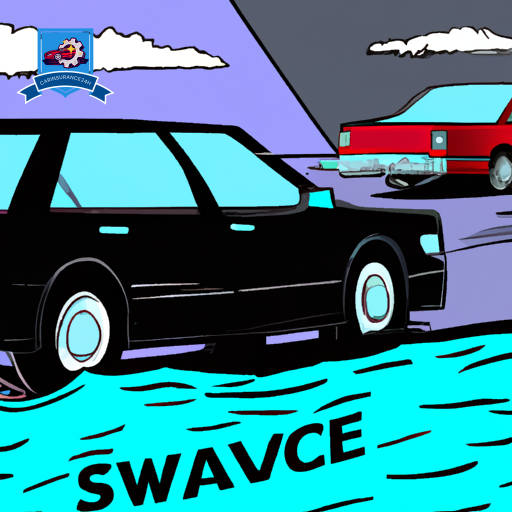
Selecting the appropriate car towing insurance plan necessitates thorough consideration of your specific driving habits and vehicle type. The process involves understanding various offerings and how they align with your needs. A critical aspect to consider is the balance between extensive coverage and cost-effectiveness. This involves evaluating factors such as the frequency of your travels, the age and condition of your vehicle, and the typical distances you cover.
| Factor | Why It’s Important |
|---|---|
| Driving Habits | Frequent travelers or those driving in challenging terrains might need more robust coverage. |
| Vehicle Type | Some plans offer better terms for specific vehicle classes or ages. |
| Coverage Scope | Consider if you need additional perks like roadside assistance or only towing services. |
When delving into the specifics, one strategy to optimize both coverage and cost is to explore Insurance Discounts. Many insurers offer reduced rates for multiple policies, known as Policy Bundling. By consolidating your car insurance with home or life insurance under one provider, you can achieve substantial savings. Moreover, asking about discounts for safe driving records or security features installed in your vehicle can further reduce premiums.
Choosing the right car towing insurance plan, thus, is not merely about selecting the lowest price option but finding a balance that offers peace of mind while being financially sensible. It requires a strategic approach, considering both immediate needs and potential long-term benefits. By carefully evaluating these aspects, you can make that you’re adequately protected without overpaying.
Cost Considerations

Evaluating the financial implications of car towing insurance necessitates a thorough understanding of average premium rates and the influence of deductibles on overall costs. These factors play a pivotal role in determining the affordability and value of a policy.
Average Premium Rates
How much does car towing insurance typically cost, and what factors influence these premium rates? Determining the average cost of towing car insurance involves a dynamic rate comparison that hinges on several variables. Geographic influences play a substantial role, with premiums adjusting based on location-specific risks and regulations. Additionally, the level of coverage selected and the policyholder’s driving history are critical determinants of the final cost.
Key factors affecting premium rates include:
- Geographic location: Rates vary substantially from one region to another.
- Coverage level: Choosing inclusive coverage can increase premiums.
- Driver’s history: A clean driving record may lead to lower rates.
Understanding these factors provides a clearer insight into how towing car insurance premiums are structured and what policyholders can expect to pay.
Deductible Impact Analysis
When considering the overall cost implications of car towing insurance, the chosen deductible amount plays a pivotal role in shaping premium rates. A thorough understanding of deductible calculation is essential for policyholders aiming to optimize their insurance costs, especially at the time of policy renewal.
| Deductible Amount | Premium Impact | Policy Renewal Consideration |
|---|---|---|
| $100 | Low Reduction | Best for low-risk drivers |
| $250 | Moderate Reduction | Balanced option |
| $500 | High Reduction | Preferred for saving on premiums |
| $1,000 | Highest Reduction | Ideal for minimal claims |
| $1,500 | Maximum Reduction | For those prioritizing low premiums |
This table illustrates how higher deductibles can lead to significant premium reductions, providing a strategic avenue for policyholders to manage their insurance expenses effectively.
Towing Limits and Restrictions
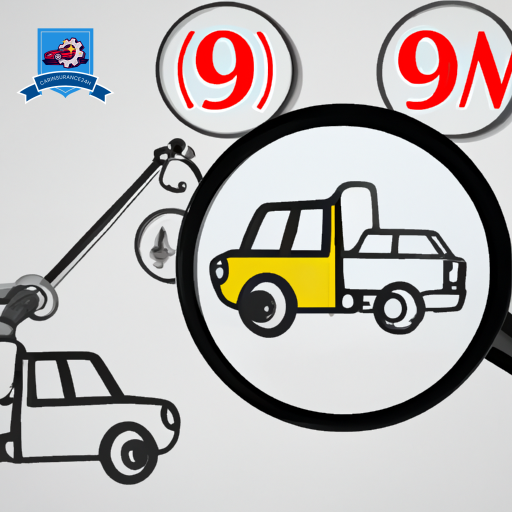
Understanding towing limits and restrictions is important for policyholders to maintain compliance and avoid potential penalties. These limits are often determined by various factors, including the vehicle’s weight and the legal restrictions in place within a certain jurisdiction. It’s essential for individuals seeking or currently holding towing car insurance to familiarize themselves with these limitations to make sure their coverage is both adequate and effective.
Vehicle weight plays a critical role in determining towing capacity. Heavier vehicles might be able to tow more, but this also depends on the specific vehicle’s towing design and the manufacturer’s recommendations. Exceeding these recommendations can lead to significant safety risks and potential violations of insurance policy terms.
Legal restrictions also vary by location and can impact the allowable towing practices. These might include limitations on the types of vehicles that can be towed, the maximum weight allowed, and specific requirements for towing equipment and procedures. Ignorance of these legal stipulations does not exempt one from liability or the potential for penalties.
To emphasize the importance of understanding these limits and restrictions, consider the following:
- Vehicle Compatibility: Not all vehicles are designed to tow, and understanding the compatibility between your vehicle and the towed load is critical.
- Safety Regulations: Adhering to safety regulations not only makes sure compliance but also promotes the safety of all road users.
- Insurance Policy Terms: Violating towing limits may void your insurance coverage or lead to increased premiums.
Adding Towing to Your Policy
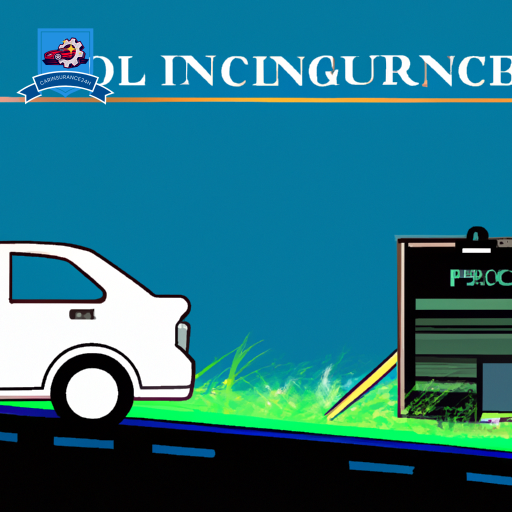
Adding towing coverage to an existing car insurance policy can greatly enhance your protection and peace of mind while on the road. Often, this addition is viewed as a minor modification to your policy, but its benefits can be substantial, especially when unexpected events occur. It’s important to understand the steps and considerations involved in adding towing coverage to make sure it aligns with your needs.
Initially, review your current policy to assess if towing services are already included or if there are options for adding them. Contact your insurance provider to discuss the specifics of adding towing coverage, including the cost and the process involved. It’s important to inquire about Policy Discounts that could apply, potentially reducing the overall cost of your insurance package.
Coverage Exclusions are another critical area to take into account. These are situations or conditions under which the towing service would not be covered. Understanding these exclusions is essential to avoid surprises when you need the service the most.
To further clarify the process and benefits, here’s a quick overview:
| Aspect | Details |
|---|---|
| Policy Discounts | Ask about discounts for adding multiple services. |
| Coverage Exclusions | Know what situations are not covered to avoid surprises. |
| Cost and Procedure | Understand the cost and the process to add towing coverage. |
Inclusion of towing coverage is a strategic decision that can save you from inconvenience and unexpected expenses. By thoroughly evaluating your options and understanding the associated benefits and limitations, you can make an informed decision that enhances your car insurance policy effectively.
Common Towing Scenarios
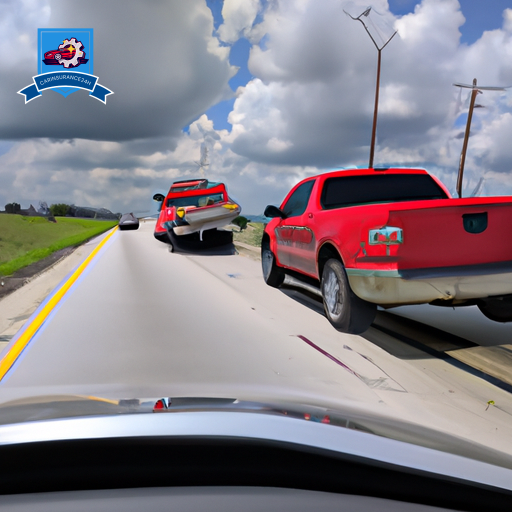
Having explored the process of enhancing your policy with towing coverage, it is now pertinent to examine common scenarios where such service proves invaluable. Understanding these situations not only clarifies the utility of towing services but also dispels prevalent towing misconceptions and highlights the risks associated with DIY towing efforts.
One of the most frequent reasons for requiring towing is vehicle breakdowns. Mechanical failures can occur unexpectedly, leaving drivers stranded on the side of the road. In these instances, professional towing services guarantee that the vehicle is safely transported to a repair facility without further damage.
Accidents, ranging from minor fender benders to severe collisions, often render vehicles inoperable. Towing services play a critical role in these scenarios, removing vehicles from the scene to allow for traffic flow and facilitating the necessary repairs or inspections.
Severe weather conditions, such as heavy snowfall, floods, or hurricanes, can also necessitate towing. Vehicles may become stuck or suffer damage that prevents them from being driven safely. Professional towing services are equipped to handle such conditions, providing an important resource for affected drivers.
- Towing misconceptions often lead individuals to underestimate the complexity and risks involved in safely transporting a vehicle.
- DIY towing risks include potential damage to both the towed and towing vehicles, increased accident risk, and legal liabilities.
- Professional towing services mitigate these risks, guaranteeing safe and legal vehicle transportation.
Claim Process Explained
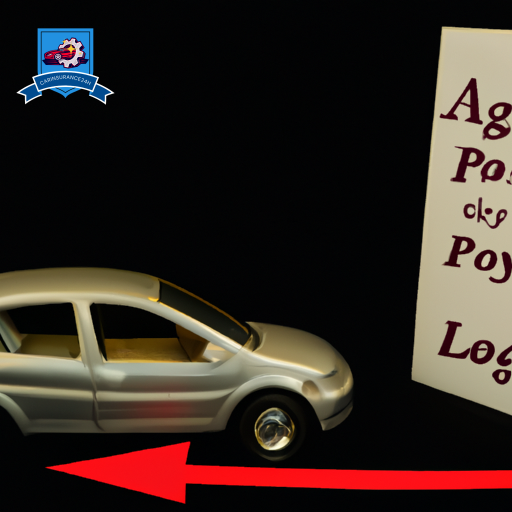
Understanding the claim process is critical for policyholders in need of car towing services. This section will guide you through the initial step of filing a claim and the subsequent coverage verification steps.
It is crafted to provide a clear roadmap to guarantee your towing needs are met efficiently and within the scope of your policy.
Filing a Claim
Filing a claim for towing insurance typically involves promptly notifying your insurance provider and accurately detailing the incident that necessitated the tow. The claim process is critical to understand, as it can directly affect your coverage continuity and financial responsibilities.
Several factors can influence the outcome of your claim, including the reasons for claim denial and the impact on policy renewal.
- Claim denial reasons: Make sure you understand common grounds for claim denial, such as policy exclusions or failure to notify within the stipulated time.
- Policy renewal impact: A history of frequent claims may affect your policy’s renewal terms, potentially leading to higher premiums or non-renewal.
- Documentation: Keeping detailed records and photos can greatly streamline the claim process.
Exploring the claim process with these considerations in mind can help guarantee a smoother experience and prevent unforeseen complications.
Coverage Verification Steps
Before initiating a claim, verifying your towing insurance coverage is a vital step to make sure the process unfolds smoothly. This verification serves as a safeguard against insurance fraud and makes certain that your policy is active and covers the specific incident.
Begin by reviewing your policy documents thoroughly, paying close attention to details regarding coverage limits, exclusions, and the conditions under which towing is covered. It’s essential to verify whether your policy is up-to-date, especially if you’re near your policy renewal date, to prevent any gaps in coverage.
Contacting your insurance provider directly can clarify any uncertainties and provide confirmation of your coverage status. This proactive approach not only streamlines the claim process but also protects you against potential disputes or denials based on coverage issues.
Preventing Towing Incidents
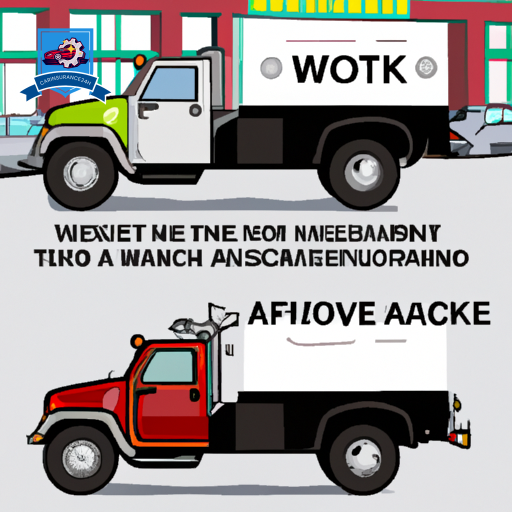
To prevent towing incidents, drivers should regularly maintain their vehicles and be aware of parking regulations. The importance of vehicle upkeep cannot be overemphasized when it comes to avoiding unnecessary situations that might lead to your car being towed. This includes both adhering to safe driving practices and following vehicle maintenance tips. Safe driving not only guarantees that your vehicle remains in good working order, reducing the likelihood of breakdowns that could result in towing, but also minimizes the risk of accidents.
-
Safe Driving Practices:
-
Always comply with traffic laws, stay within speed limits, and avoid aggressive maneuvers that can lead to accidents or mechanical failures.
-
Vehicle Maintenance Tips:
-
Regularly inspect your vehicle’s oil levels, tire pressure, and brake functionality to prevent breakdowns.
-
Parking Regulations Awareness:
-
Familiarize yourself with local parking laws to avoid parking in restricted zones that could lead to your vehicle being towed.
Frequently Asked Questions
Can Towing Insurance Cover the Costs of Repairs if My Vehicle Is Damaged While Being Towed?
Usually, towing insurance can cover repair costs if your vehicle sustains damage while being towed, subject to the policy’s towing limits and conditions.
To mitigate risks, it’s recommended to familiarize oneself with these limits and take preventive measures.
Ensuring extensive coverage that aligns with your needs and understanding the policy’s specifics can provide peace of mind and financial protection against unforeseen damages during the towing process.
How Does Towing Insurance Interact With Roadside Assistance Programs Offered Through My Credit Card or Vehicle Manufacturer?
How does one navigate the overlap between roadside assistance programs and other protections?
Credit card benefits and manufacturer warranties often offer roadside assistance, including towing services. These programs may work in tandem with or independently from any additional towing insurance you have.
It’s critical to understand the specifics of each policy to guarantee thorough coverage without unnecessary overlap. Precisely, knowing the extent of each can maximize benefits while ensuring seamless support during vehicle-related emergencies.
Are There Any Specific Documentation or Proof Requirements When Filing a Claim for a Towing Incident?
When initiating a claim process for a towing incident, it is imperative to adhere to a documentation checklist to ensure a smooth and effective claim submission. This checklist typically includes evidence of the incident, a detailed tow receipt, a police report if applicable, and any other relevant communications or documents.
Accurate and thorough documentation is critical for verifying the incident and facilitating the timely and successful resolution of the claim.
Can I Choose Any Towing Service Provider, or Must It Be One Affiliated With My Insurance Company?
When selecting a towing service provider, policyholders often have the flexibility to choose any provider. However, opting for a provider within the insurance company’s affiliated network may yield certain benefits, such as towing discounts.
It’s crucial to consult your policy details or contact your insurance representative to understand the specifics of provider networks and any potential advantages or limitations. This guarantees you make an informed decision that aligns with your coverage benefits.
How Does Towing Insurance Coverage Vary for Different Types of Vehicles, Such as Motorcycles, Boats, or Rvs?
Towing insurance coverage varies substantially across different vehicle types, including motorcycles, boats, and RVs, primarily due to vehicle weight and coverage limits.
Heavier vehicles, like RVs and boats, often require specialized towing services and equipment, leading to higher coverage limits and premiums. Conversely, motorcycles, being lighter, generally incur lower towing costs, reflecting in more modest insurance coverage requirements.
Understanding these distinctions is vital for selecting appropriate insurance to meet specific towing needs.
